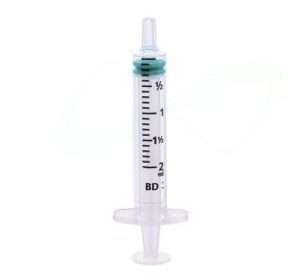Fenbendazole is one of the most widely used and trusted antiparasitic medications in the veterinary world. It has become a go-to solution for treating a variety of internal parasites in pets, livestock, and even some exotic animals. Whether you’re a dog owner concerned about intestinal worms or a farmer managing livestock health, understanding how Fenbendazole works, its benefits, and its correct usage can help you keep your animals healthy and parasite-free.
What is Fenbendazole?
Fenbendazole is a broad-spectrum anthelmintic (dewormer) that belongs to the benzimidazole class of medications. It’s primarily used to treat gastrointestinal parasites, including roundworms, hookworms, whipworms, and certain tapeworm species. Veterinary professionals recommend Fenbendazole because of its efficacy, safety profile, and relatively low risk of adverse effects when administered properly.
How Fenbendazole Works
Fenbendazole works by disrupting the metabolic processes of parasitic worms. Specifically, it binds to the parasite’s microtubules, preventing them from absorbing nutrients and carrying out vital cellular functions. Over time, this leads to the parasite’s death and expulsion from the animal’s body. Because of this targeted mechanism, Fenbendazole has minimal impact on the host animal’s health when dosed correctly.
Common Uses in Pets
For pet owners, Fenbendazole is most commonly prescribed for dogs and cats, though it is also effective in rabbits, reptiles, and birds under veterinary guidance. Some of the most common conditions treated with Fenbendazole include:
- Intestinal Worms: Such as roundworms, hookworms, and whipworms.
- Certain Tapeworms: Specifically Taenia species, though not typically Dipylidium caninum, which often requires a different medication.
- Giardia Infections: In dogs, Fenbendazole can also be prescribed to manage Giardia, a protozoan parasite causing diarrhea and gastrointestinal distress.
Benefits of Using Fenbendazole
- Broad-Spectrum Efficacy: One of the biggest advantages of Fenbendazole is its ability to target multiple parasites at once. This makes it ideal for routine deworming protocols.
- Safety Profile: When used according to veterinary instructions, Fenbendazole is well tolerated in most animals, including young puppies and pregnant dogs (with caution).
- Ease of Administration: Fenbendazole is available in several forms, such as granules, suspensions, and pastes, making it easy to administer with food or directly.
- Cost-Effective: Compared to other antiparasitic medications, Fenbendazole is often more affordable, especially for large animals or multi-pet households.
Dosage and Administration
The appropriate dosage of Fenbendazole depends on the animal’s species, weight, age, and the type of parasite being treated. For example, a dog being treated for roundworms may need a different dose than a horse being treated for strongyles. It’s essential to follow your veterinarian’s dosing instructions precisely, as underdosing can lead to incomplete parasite eradication and potential drug resistance, while overdosing may cause adverse effects.
Fenbendazole is usually administered over several consecutive days for optimal effectiveness. For example, a common protocol for dogs involves giving the medication for three consecutive days, with adjustments made depending on the parasite burden.
Side Effects and Safety Considerations
While Fenbendazole is generally safe, it’s not entirely free from side effects. Some pets may experience mild gastrointestinal symptoms such as vomiting, diarrhea, or loss of appetite. These reactions are typically temporary and resolve once the medication is discontinued.
Serious side effects are rare but can occur if the pet is overdosed or has an underlying health condition. Always inform your veterinarian about any medications or supplements your pet is taking to avoid interactions.
Pregnant animals should only receive Fenbendazole under veterinary supervision, as incorrect dosing can pose risks to the developing fetuses.
Importance of Veterinary Guidance
Self-medicating your pet without professional guidance can be dangerous. Although Fenbendazole is widely available, only a veterinarian can accurately diagnose the type of parasite and recommend the appropriate dose and treatment duration. In some cases, stool tests may be necessary to confirm the presence of parasites and monitor the effectiveness of treatment.
Fenbendazole for Livestock and Exotic Animals
Beyond household pets, Fenbendazole is widely used in livestock such as cattle, sheep, goats, and horses. Routine deworming helps prevent weight loss, poor growth, and disease transmission among herds. Exotic animals like reptiles, zoo mammals, and birds may also benefit from Fenbendazole under specialized veterinary care, as parasites can severely impact their health in captivity.
Resistance Concerns
As with any antiparasitic medication, there is a growing concern about resistance. Overusing or improperly dosing Fenbendazole can lead to parasites developing resistance, making the drug less effective over time. To minimize this risk, rotate deworming medications as recommended by your veterinarian and follow dosing protocols carefully.
Where to Buy Fenbendazole
Fenbendazole is available through veterinary clinics, online pet pharmacies, and livestock supply stores. However, it’s always best to purchase it from reputable sources to ensure product quality and authenticity. For example, many pet owners in Latin America and beyond rely on trusted platforms like petworldgdl.com for veterinary supplies, ensuring they get genuine products for their pets.
Tips for Effective Deworming
- Regular Checkups: Have your pet’s stool tested annually or as recommended to monitor for parasites.
- Follow Schedules: Stick to deworming schedules to prevent reinfection.
- Sanitation: Clean up pet waste promptly to reduce environmental contamination.
- Preventative Measures: Use flea and tick control, as some intestinal parasites are transmitted by intermediate hosts like fleas.
Final Thoughts
Fenbendazole has earned its reputation as a reliable, broad-spectrum antiparasitic medication for pets, livestock, and exotic animals. Its proven safety record, affordability, and effectiveness make it a staple in veterinary medicine. However, responsible use is crucial to maintaining its efficacy. Always consult your veterinarian before starting any deworming regimen, follow dosing instructions carefully, and purchase products from reputable sources.
By understanding how Fenbendazole works and applying best practices, you can protect your animals from harmful parasites, support their long-term health, and ensure your household or farm remains a safe and parasite-free environment.



